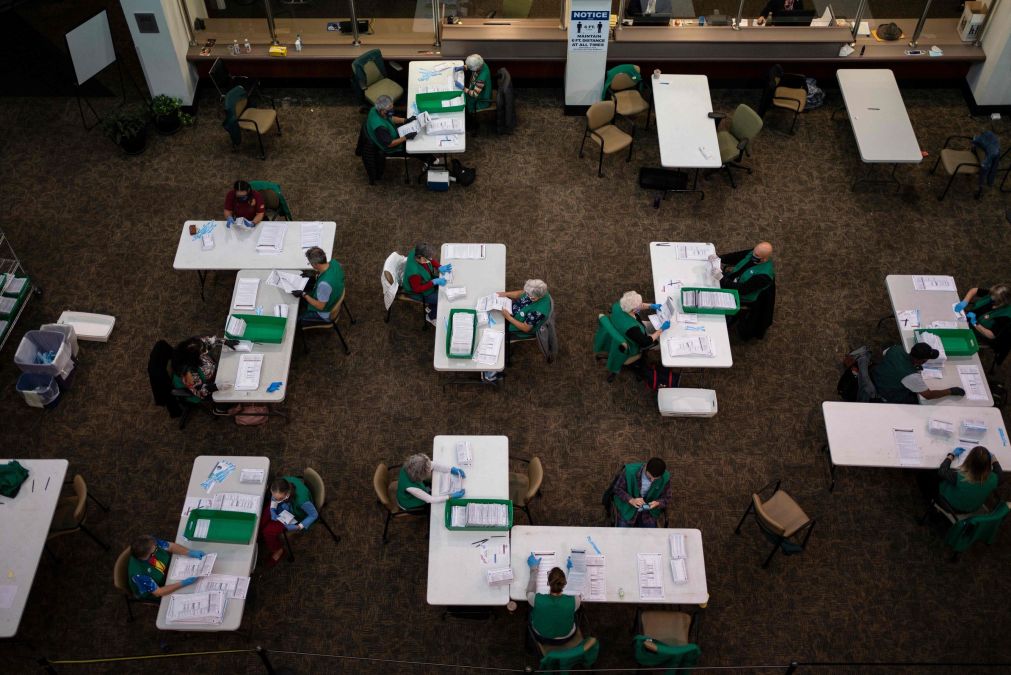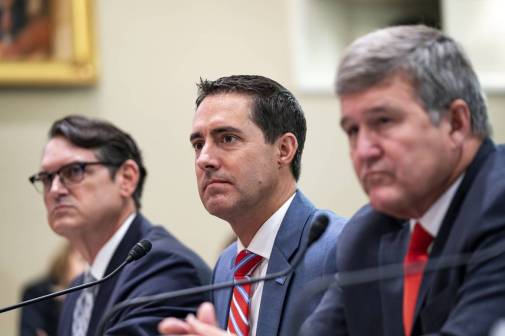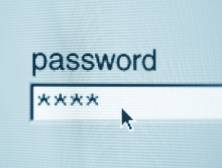Colorado passes election security bill inspired by clerk accused of tampering

Legislators in Colorado on Tuesday passed a bill aimed at stopping insider threats against election administration, particularly the technology used to process and certify ballots.
The bill, which passed with bipartisan support, makes several changes to how county election offices safeguard and provide access to their systems, including requiring continuous video surveillance of all voting systems components, and installing key-card access to rooms where equipment is kept. It also prohibits the unauthorized copying of ballot-machine hard drives and makes it a felony to tamper with voting systems, publish devices’ passwords online or give unauthorized individuals access to any election equipment.
The legislation, which now goes to Gov. Jared Polis’ desk, was inspired directly by the case of Tina Peters, the clerk and recorder of votes in Mesa County who is currently under indictment for several of those offenses. Peters, who’s openly backed unsupported conspiracy theories about the 2020 election, was accused last year of allowing an unauthorized individual to observe a secure software update on her county’s ballot-processing machines and letting that person make copies of hard drives and passwords, images of which were displayed a few months later at a conspiracy-theorist conference hosted by pillow manufacturer Mike Lindell.
“Since the 2020 Election, we have seen election officials in Colorado and in other states compromise voting equipment and breach election security rules to prove unfounded conspiracy theories,” Colorado Secretary of State Jena Griswold said in a press release. “This first-in-the-nation legislation makes it a felony to compromise voting equipment and increases protections against those seeking to harm to elections from within.”
The tightened security rules in the bill codify much of a directive Griswold issued in February, around the time another clerk, Elbert County’s Dallas Schroeder, said that he had also shared images of election-related computers’ hard drives with unauthorized individuals. (Schroeder turned the hard drives over to the Colorado attorney general’s office last week.)
Griswold said the bill also contains new whistleblower protections for people who report violations of election laws. It also prevents any elected official or candidate in a jurisdiction with more than 100,000 residents — Mesa County being home to about 153,000 — from being in the same room as any voting equipment without the presence of at least one person with authorized access.
To pay for all the upgrades, especially the video surveillance and keycard locks, the legislation also creates a $1 million grant fund for counties.
Peters removed from election role
While Peters remains in office in Mesa County, she was relieved of her election-administration duties Tuesday when a judge there ruled in favor of a complaint Griswold brought earlier this year seeking to block Peters and deputy clerk Belinda Knisley, who’s facing similar charges, from overseeing voting processes at the same time she’s they’re on trial for tampering with them.
“Peters and Knisley have committed a neglect of duty or other wrongful act such that they are unable to perform the duties required under the Election Code due to the allegations of criminal acts that are currently pending,” Judge Valerie J. Robinson, who’s overseeing both cases, wrote in her opinion, the Associated Press reported.
To take over Peters’ duties, Robinson appointed Brandi Bantz, Mesa County’s director of elections, to serve as the designated elections official. In a separate press release, Griswold said Brantz has worked on elections in several Colorado counties over the past 20 years.
Peters, who is also seeking the Republican nomination for secretary of state this year, will next appear in court May 24 for her arraignment. Colorado’s new election-security bill will also prevent anyone from serving as a designated election official if they’ve been convicted of an election-related offense. It makes the same prohibition for anyone convicted of “sedition, insurrection, treason or conspiracy to overthrow the government.” Of nearly 800 people nationwide who’ve been charged in relation to the Jan. 6 attack on the U.S. Capitol, just 11 have been charged with seditious conspiracy.






